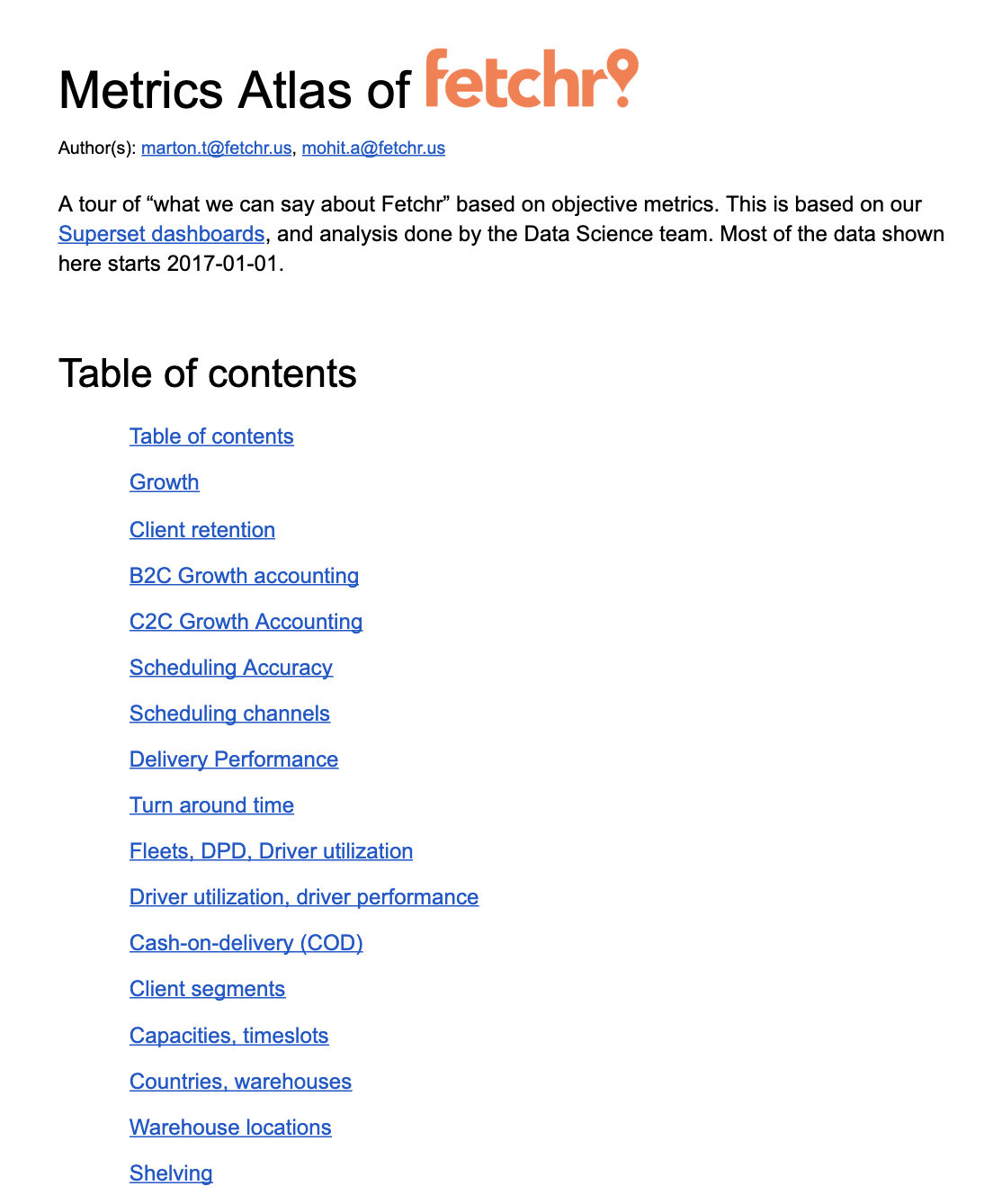Metrics Atlas
Marton Trencseni - Thu 29 August 2019 - Data
The idea is simple: write a document which helps new and existing people—both managers and individual contributors—get an objective, metrics-based picture of the business. This is helpful when new people join, when people start working in new segments of the business, and to understand other parts of the company.
Companies with a data/analytics team end up with lots of dashboards and reports, plus hundreds of ad-hoc, non-dashboarded analysis that data scientists produce over the years. The dashboards are usually discoverable because they're in one system, but there will be a lot of them. But it's hard mental work to look through 50-100 dashboards and make sense of it all. Many people won't do that. And the ad-hoc reports and presentations are locked up in documents, notebooks, email threads, not discoverable by others, even though many of them contain valuable insights.
The idea is similar to when an engineering team concludes their system design work by writing a document explaining the architecture they chose, why they chose it, trade-offs, lessons learned. A written document, with lots of charts and links, that somebody can read and get a good picture of the product/business. This is one, long, stand-alone document. Wikis are good, but wikis will have a lot of sub-pages and are better for search-and-find consumption use-cases. With the atlas, the user experience is that the reader will go through the whole thing and will have a good feeling that they now understand the business better. And because it has links, they now know where to look for metrics, dashboards, wikis, or who to ask. It doesn't have to be to-the-day up to date, it's good enough to update it every 3-6 months.
The first time I had this idea was at Prezi, but we never got around to it. At Facebook I was working on Workplace, which at that time was so new and changing so fast that this didn't make sense. At Fetchr, we were able to allocate a few days to this recently, and it turned out very useful!
For us it's a Google doc, we co-edit it, and share it within the company. Right now it's about 40 pages, it will probably come in at 50 pages in the end. Since we've been working with this data and metrics every day for the last 2 years, writing this was not a big effort.
This is what the first page looks like:
